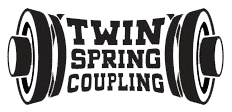The Role of Power Transmission Couplings in Maximizing Efficiency on the Farm
Table of Contents
Farming today is all about maximizing productivity while keeping costs low. As a farmer, your machinery is your lifeline, and ensuring it runs at peak performance can make all the difference in your bottom line. One often-overlooked component that plays a vital role in the efficiency and longevity of your equipment is the power transmission coupling.
In this blog, we will delve into how well-maintained power transmission couplings improve the efficiency and performance of farming equipment. We’ll explore the benefits of routine maintenance, the risks of neglect, and how to select the right couplings for your farm equipment. Whether you’re running a small family farm or managing a large agricultural operation, understanding the importance of this critical component can save you both time and money.
What Are Power Transmission Couplings?
Power transmission couplings are mechanical devices that connect two shafts together in a machine, allowing torque and power to be transferred from one component to another. In the context of farm machinery, couplings are typically used in equipment such as tractors, balers, combines, and irrigation systems. These couplings serve a dual purpose: they not only transmit power efficiently but also accommodate misalignments and reduce the impact of shock loads, thereby protecting your machinery from damage.
Types of Power Transmission Couplings in Farming Equipment
Different types of couplings are used depending on the kind of equipment and the specific farming task. Some of the most common types include:
- Jaw Couplings: Known for their durability and ability to handle shock loads, these are widely used in agricultural machinery.
- Elastomeric Couplings: These flexible couplings help absorb vibrations, making them ideal for equipment that operates in rugged conditions.
- Gear Couplings: Suited for high-torque applications, such as heavy-duty tractors or combines.
- Disc Couplings: Offering high accuracy and precision, disc couplings are often used in equipment where precision alignment is crucial.
Each type of coupling has its specific role and benefits, but they all share one common trait: proper maintenance ensures their efficiency and longevity.
How Well-Maintained Couplings Improve Efficiency
1. Reduced Wear and Tear on Equipment
When power transmission couplings are regularly inspected and maintained, they perform at optimal levels, which reduces the stress on other parts of your equipment. For example, if a coupling is misaligned or worn out, it can create extra vibration or resistance, leading to premature wear on components like bearings, shafts, and motors. Regular maintenance ensures that the coupling remains in good condition, which translates into smoother operations and less wear on the entire machine.
2. Improved Fuel Efficiency
Agricultural machinery relies heavily on power transmission to operate efficiently. A poorly maintained coupling can lead to energy losses, requiring the engine to work harder to deliver the same level of performance. Over time, this can result in increased fuel consumption. By maintaining your couplings, you can reduce power losses and improve fuel efficiency, which is particularly beneficial when operating fuel-intensive machines like tractors or harvesters.
3. Minimized Downtime
Downtime on the farm can be costly, especially during planting or harvest season when timing is critical. A failing power transmission coupling can lead to unexpected breakdowns and significant delays in your operations. By regularly inspecting and maintaining your couplings, you can catch issues early and prevent breakdowns that would otherwise lead to costly repairs and downtime. In many cases, a simple visual inspection or a quick lubrication of a coupling can prevent a minor issue from escalating into a major failure.
4. Better Performance in Tough Conditions
Farmers often operate in demanding environments—uneven terrain, fluctuating weather conditions, and heavy loads are all part of the job. Power transmission couplings, especially flexible types like elastomeric couplings, help absorb shocks and vibrations that occur during operation. This not only improves the overall performance of the machinery but also extends its operational life. Well-maintained couplings ensure that your equipment can handle the rigors of the farm without compromising on performance.
5. Extended Equipment Lifespan
Farm machinery is a significant investment, and extending its lifespan is crucial for any farmer looking to maximize their return on investment (ROI). Power transmission couplings, when properly maintained, help reduce wear on the connected components and prevent excessive strain on the machinery. This not only improves the day-to-day efficiency of your operations but also extends the life of your equipment, saving you from costly replacements and repairs down the road.
Signs Your Couplings Need Maintenance or Replacement
While regular maintenance can keep your couplings in good working order, it’s essential to know the signs that indicate when they need attention or replacement. Common signs include:
- Excessive Vibration or Noise: Increased noise or vibration during operation could signal misalignment or wear in the coupling.
- Visible Wear and Tear: Check for cracks, corrosion, or worn-out components during routine inspections.
- Reduced Performance: If you notice your equipment struggling to deliver the same level of performance, the coupling may be deteriorating.
- Increased Fuel Consumption: A spike in fuel usage may indicate that the coupling is not transferring power as efficiently as it should.
By addressing these issues early, you can prevent them from escalating into more significant problems that could disrupt your farming operations.
Selecting the Right Couplings for Your Equipment
Choosing the right type of power transmission coupling for your farm equipment is crucial for maximizing efficiency. Here are a few factors to consider when selecting a coupling:
- Type of Equipment: Consider the machinery you are using. Heavy-duty equipment like combines may require gear couplings, while more delicate machinery might benefit from elastomeric couplings.
- Torque Requirements: Ensure the coupling can handle the torque and load requirements of your equipment.
- Misalignment and Shock Loads: If your equipment is frequently exposed to shock loads or operates on uneven terrain, opt for couplings that can accommodate misalignment and absorb shocks.
- Environmental Conditions: Farm environments can be harsh, so choose couplings that can withstand exposure to dust, moisture, and temperature fluctuations.
Consult with your equipment supplier or a power transmission expert to ensure you select the best couplings for your specific needs.
Practical Steps to Maintain Power Transmission Couplings on Your Farm
Maintenance doesn’t have to be complicated. Here are some practical steps you can take to keep your power transmission couplings in top condition:
- Regular Visual Inspections: Look for signs of wear, corrosion, or misalignment. Catching these issues early can prevent costly failures.
- Lubrication: Ensure that couplings are appropriately lubricated to reduce friction and wear.
- Check Alignment: Misaligned couplings can cause excessive vibration and wear. Use alignment tools to ensure proper positioning.
- Torque Checks: Over time, couplings can loosen, especially when subjected to heavy loads. Check the torque settings regularly to ensure a secure fit.
- Replace When Necessary: Don’t wait for a coupling to fail before replacing it. Proactive replacements can save you from unexpected downtime.
The Benefits of Maintaining Power Transmission Couplings for Farmers
Farmers who invest time in maintaining their power transmission couplings can expect to see several benefits, including:
- Reduced Operating Costs: Lower fuel consumption and fewer repairs mean more money saved in the long run.
- Increased Productivity: Well-maintained machinery performs better, helping you get more work done in less time.
- Improved Machinery Longevity: Regular maintenance extends the life of your equipment, protecting your investment.
- Greater Reliability: Preventative maintenance reduces the risk of unexpected breakdowns during critical farming periods.
Call to Action: Keep Your Farm Equipment Running Smoothly
By keeping your power transmission couplings in top shape, you can maximize the efficiency, reliability, and lifespan of your farming equipment. Don’t wait for a breakdown to remind you of the importance of coupling maintenance. Take action now to inspect, maintain, and replace your couplings as needed.
Get in touch with us today to learn more about the best power transmission couplings for your farm machinery and how you can implement a maintenance plan that keeps your equipment running smoothly. From jaw couplings to gear couplings, we’ve got you covered. Let us help you improve efficiency and reduce downtime on your farm!
The Role of Power Transmission Couplings in Maximizing Efficiency on the Farm
Conclusion
Power transmission couplings are a small but essential component in the world of farm machinery. By taking the time to maintain these critical parts, you can boost the efficiency and longevity of your equipment, reduce fuel costs, and minimize downtime. With proper maintenance, your farm machinery will be ready to tackle even the toughest jobs, helping you stay productive and profitable year after year. Search for your replacement parts here!

